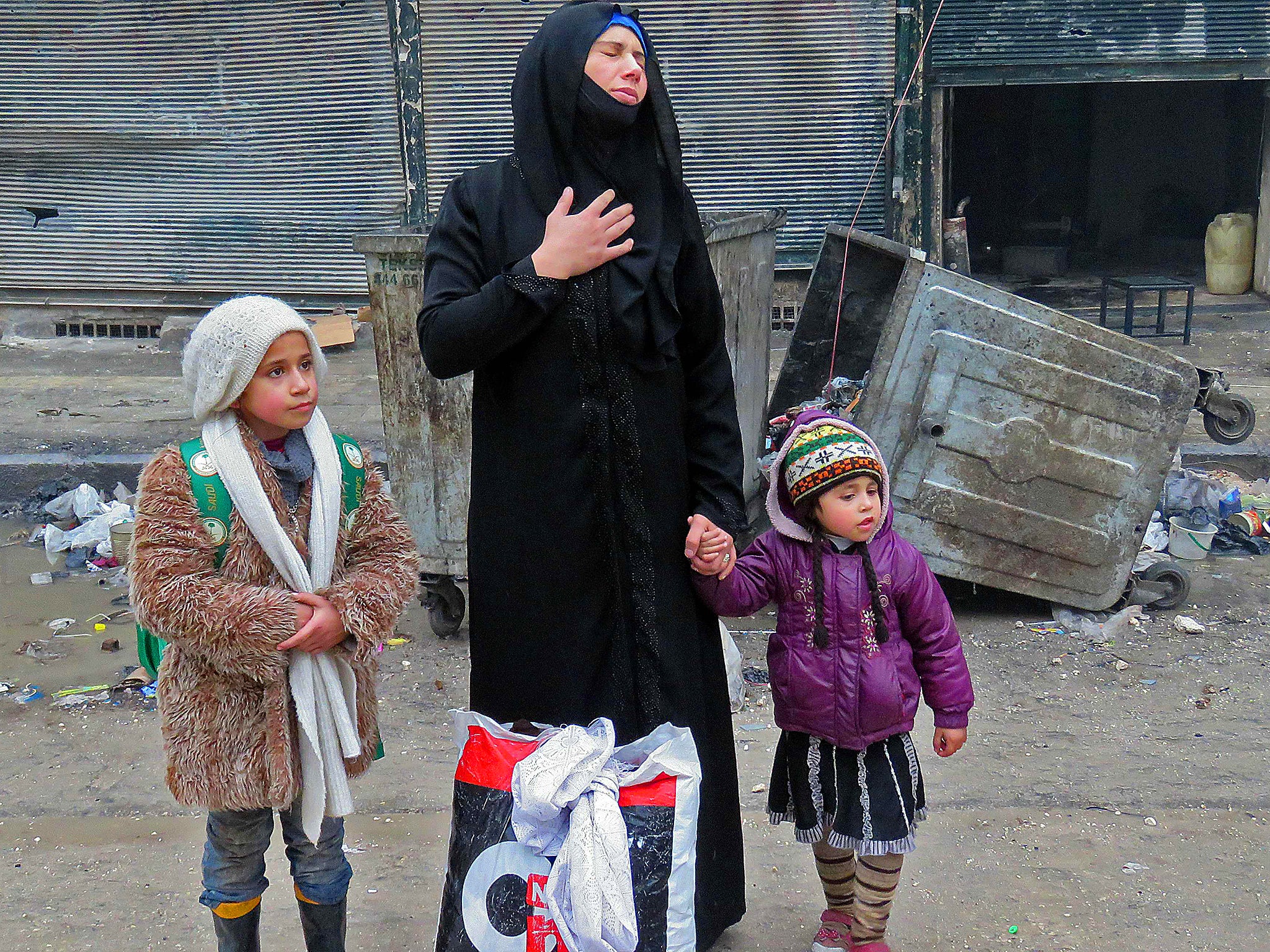Five things you can do to help Aleppo
‘Let us leave,’ activists in the last rebel-held pockets of the city say, claiming the international community has failed them

Your support helps us to tell the story
From reproductive rights to climate change to Big Tech, The Independent is on the ground when the story is developing. Whether it's investigating the financials of Elon Musk's pro-Trump PAC or producing our latest documentary, 'The A Word', which shines a light on the American women fighting for reproductive rights, we know how important it is to parse out the facts from the messaging.
At such a critical moment in US history, we need reporters on the ground. Your donation allows us to keep sending journalists to speak to both sides of the story.
The Independent is trusted by Americans across the entire political spectrum. And unlike many other quality news outlets, we choose not to lock Americans out of our reporting and analysis with paywalls. We believe quality journalism should be available to everyone, paid for by those who can afford it.
Your support makes all the difference.The last 24 hours in Aleppo have been the worst in the “bitter” fight for the city, a UN representative has said, as the Syrian government closes in on the last pockets of rebel resistance.
Aid organisations have renewed desperate pleas to reinstate a ceasefire in order to evacuate the estimated 50,000 - 100,000 civilians that remain in what a World Food Programme spokesperson described as the city’s “slow descent into hell.”
Many activists and residents The Independent has spoken with in recent months have blamed Western politicians for not doing more to end months of intense Russian-backed air strikes.
A Turkey and Russia brokered ceasefire agreement which went into effect Tuesday night was ruptured Wednesday morning after claims of violations on both sides, cruelling dashing the last hopes of those who had been promised evacuations. "We want to leave, we don't want more massacres, let us leave," one activist said in a Whatsapp message on Wednesday.
Families have already been ripped apart by violence inflicted by both the regime and rebels, and anyone accused of helping the opposition now awaits possible detention or execution by regime forces. For many people inside east Aleppo, help will come too late.
Although regaining control of the city will amount to a huge victory for President Bashar al-Assad, the war is far from over. Many more civilians all over the country will suffer before the complex conflict ends.
To help end the bloodshed caused by the Syrian crisis, you can:
1. Join demonstrations where you live
In London, protesters are meeting outside 10 Downing Street at 8.30pm, outside the Syrian Embassy at 9pm, and at other events scheduled in Liverpool and Manchester on Tuesday 13th December. Use the hashtag #StandWithAleppo to find demonstrations in your area - and if there isn’t one, organise one.
2. Call and email your MP and MEP
Let them know you want the government to do more than “condemn the violence.” Petition them to start aid drops for Aleppo and other starving areas of Syria, and ask them to consider measures such as sanctions or diplomatic repercussions for the Syrian and Russian governments.
The EU has taken discussion of sanctions on Russia over its actions in Aleppo - first proposed in October - off the agenda for a summit in Brussels on Thursday.
3. Donate to relief efforts
The Syrian government has blocked UN aid shipments from entering Aleppo since the siege barricades went up in July. A list of trustworthy local and international NGOs working on the ground in Syria can be found here.
4. If you have a specific skill set, volunteer your time
Medical professionals have helped saved innumerable lives by assisting the beleaguered doctors and nurses in Aleppo by giving advice via Skype. Get in touch with US-based SAMS, a medical charity that operates all over Syria, for how to get involved.
If you speak Arabic and can offer translation services for aid organisations, contact your local branch.
5. Support the global refugee effort
Refugee resettlement in the UK is done on a voluntary basis by constituency. Tell your Local Government Association if you would be willing to foster an unaccompanied refugee child, and that refugee families are welcome in your area.
Tell your local council and MP that you want the UK to agree to take in more refugees. Jordan and Lebanon - Syria’s neighbours - are currently home to almost three million Syrians. The UK has agreed to resettle 20,000 by 2020, and is currently not on track to reach that target.
Join our commenting forum
Join thought-provoking conversations, follow other Independent readers and see their replies
Comments